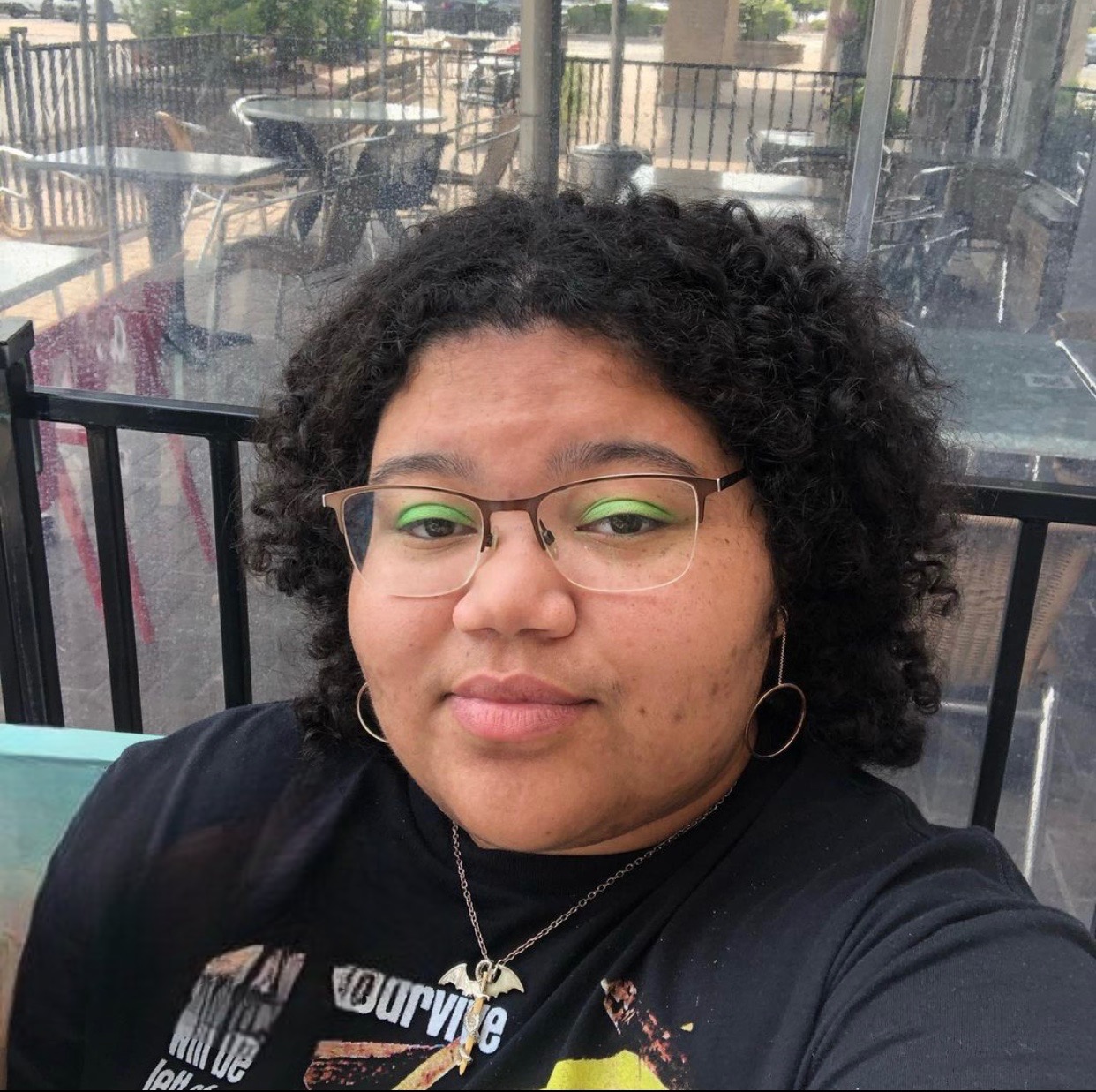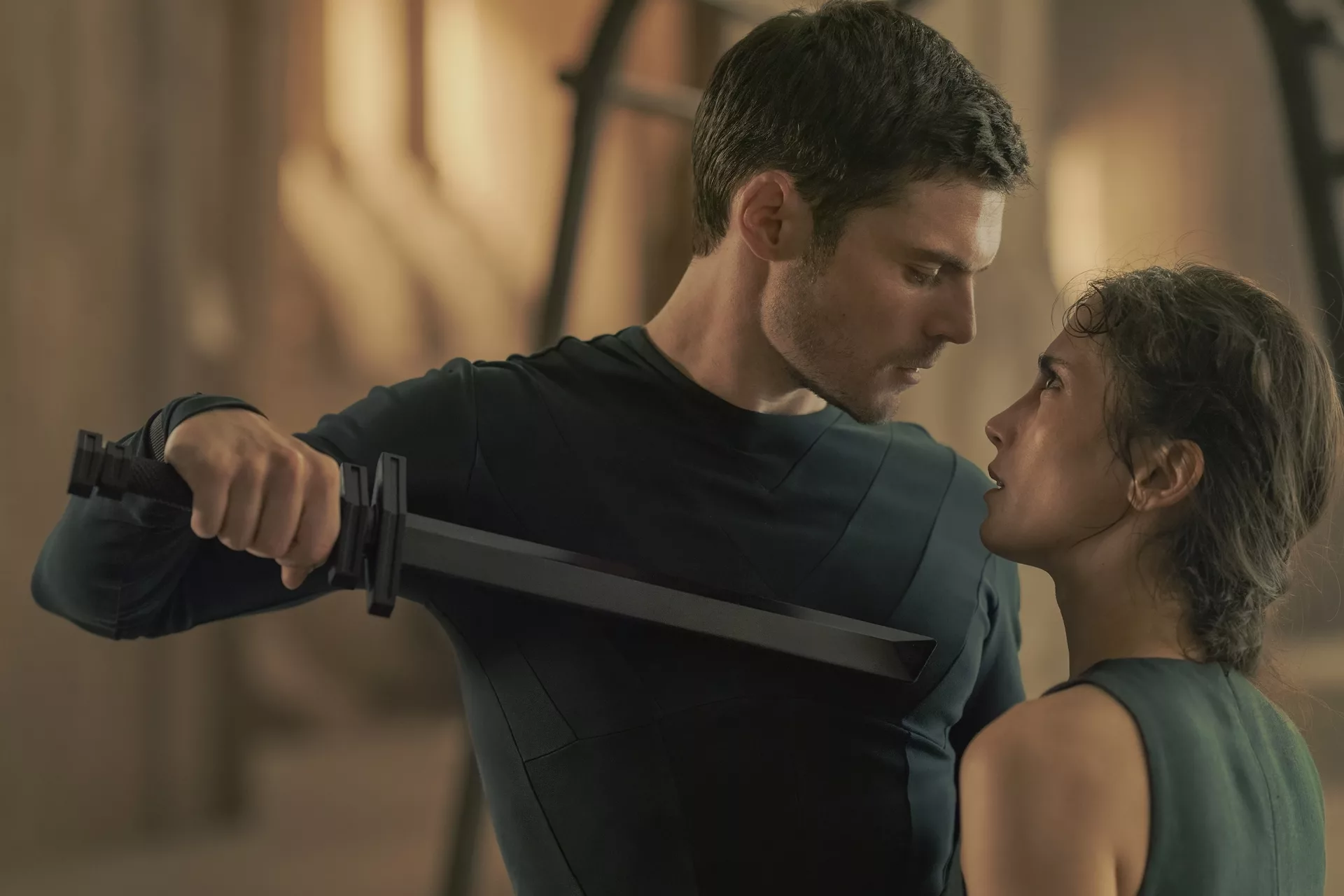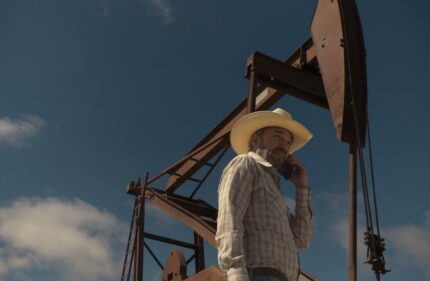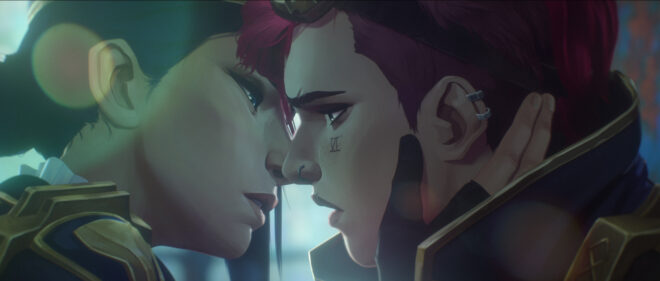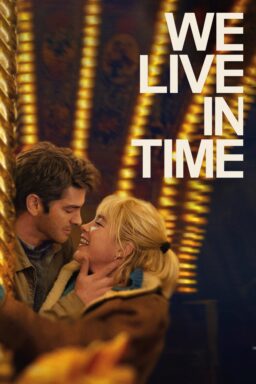Coming off of the wild success of Denis Villeneuve's "Dune: Part Two" comes a Max series set in the same world, thousands of years before. Originally ordered in 2019 (then called "Dune: Sisterhood"), the retitled "Dune: Prophecy" has had its fair share of setbacks. Delays and creative overhauls have plagued it from the start, a blatant hint that perhaps this was a series that wasn't ready for release when it was originally pitched. Villeneuve's work on the "Dune" films is so specific; adapting a story and making it all the richer while simultaneously staying true to Frank Herbert's original work. The weight of these films is a heavy one, which makes the burden this series must hold upon its shoulders all the heavier.
From its opening minutes, "Dune: Prophecy" struggles to make a name for itself outside these films. Where this year's "Dune: Part Two" opened with the phrase "Power over Spice is power over all" (taken from Frank Herbert's book), this prequel boasts the idea that "Victory is celebrated in the light, but it's won in the darkness." Instead of being spoken by a Sardaukar priest, it's carried through the opening scene by various whispers, blending into each other until they disappear.
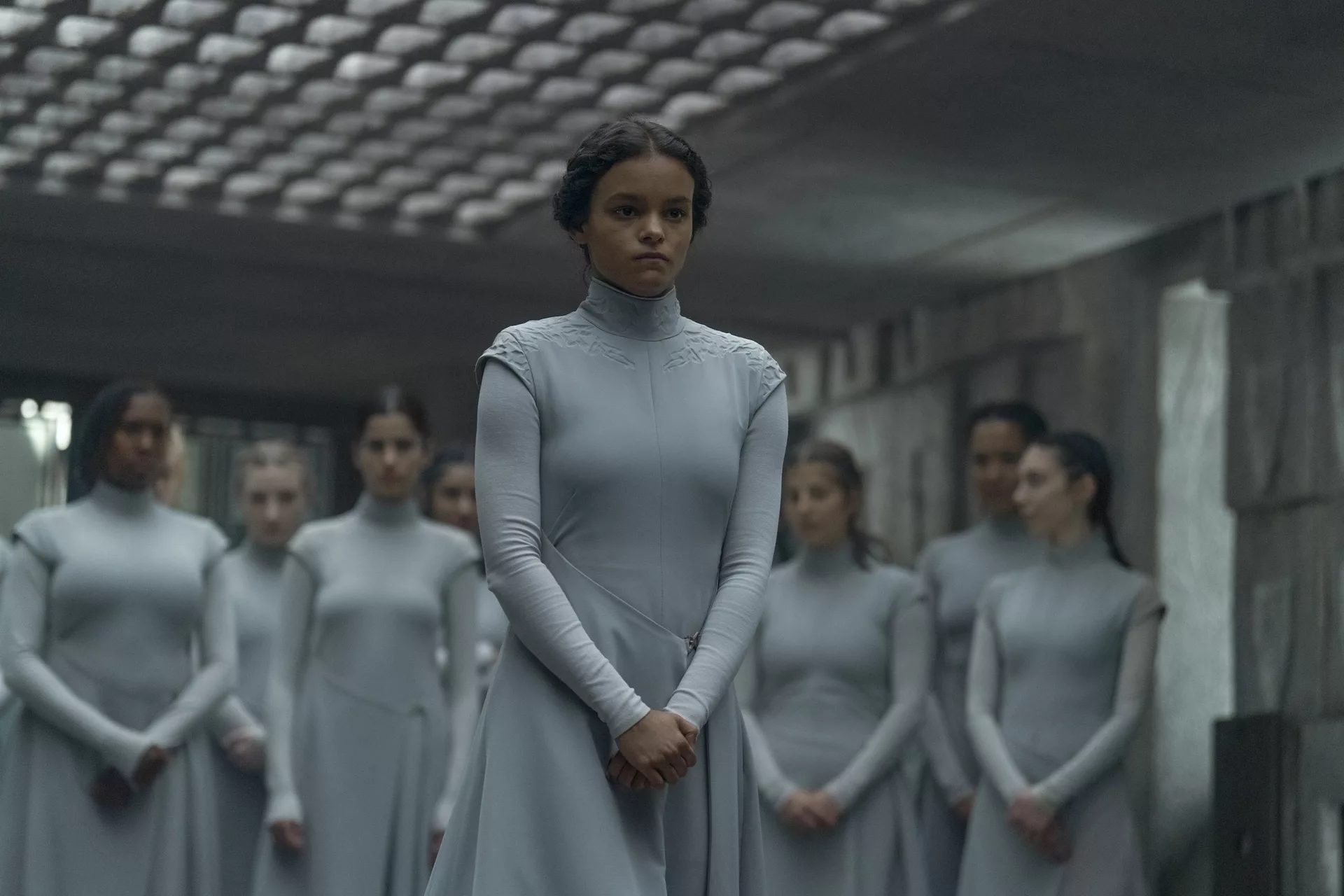
After this proclamation, we're introduced to the series protagonist, Valya Harkonnen (played by both Jessica Barden and Emily Watson), who will stop at nothing to take control as the Mother Superior of the Bene Gesserit begins to die. It appears that an ancient and unknown power lies within her, one so strong that her age and inexperience don't matter. But, as the current Mother Superior fades away, Valya is shown an apocalyptic vision through her eyes. Lights fragment and refract through the screen as shrieks and cries reverberate through Valya's head. Though the vision is unexplainable to us, to Valya, it showcases the end of the world as she knows it. From here, she is determined to prepare the other members of the sisterhood for an evil that could lead to societal collapse.
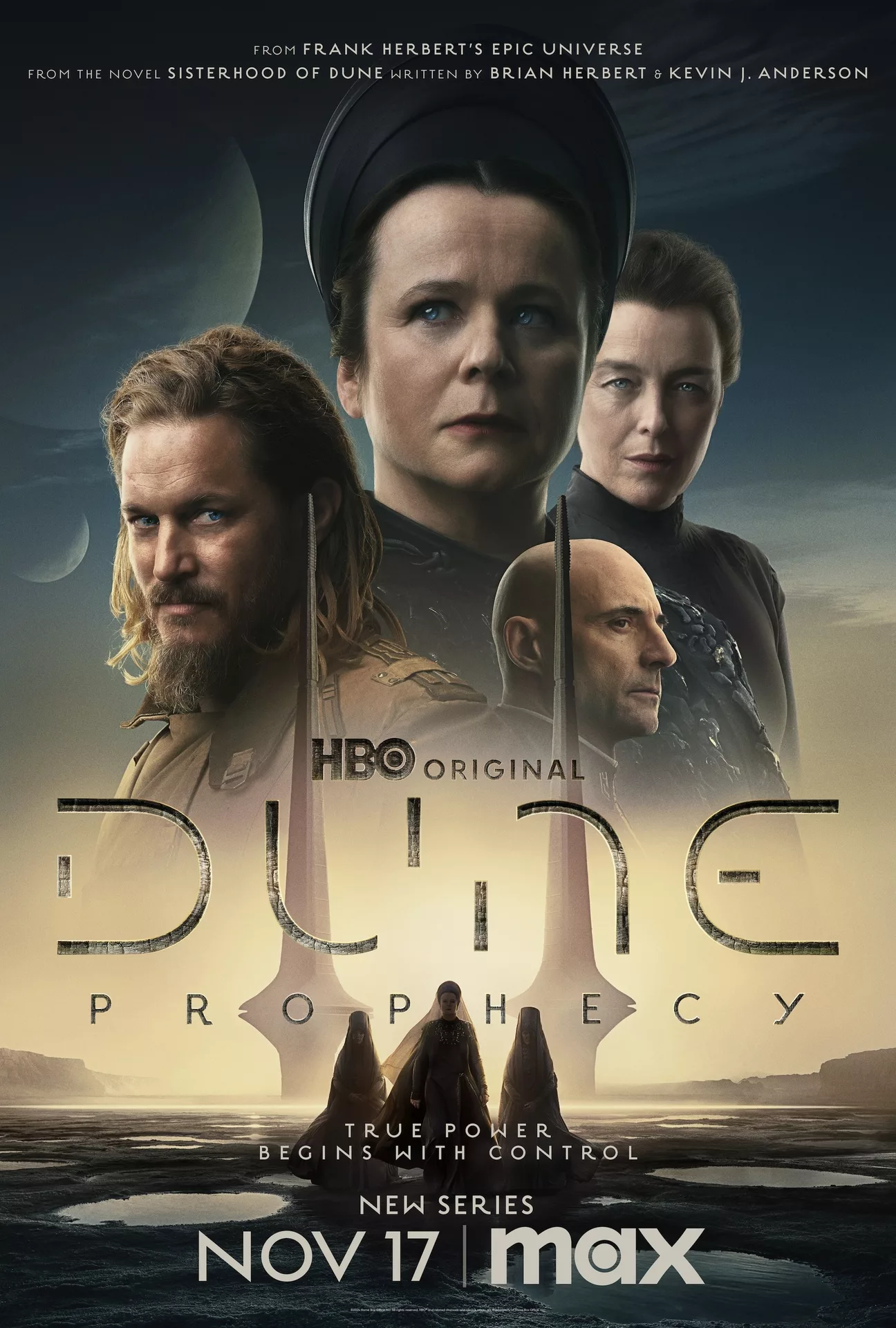
We are then transported 30 years into the future, or as the series makes apparent for us, "10,148 before the birth of Paul Atreides." As a means to see that the vision she saw as a young woman does not come true, Valya is the sole reason why the Bene Gessiert find themselves orchestrating marriages throughout the planets. Now, she strives to marry Princess Ynez (Sarah-Sofie Boussnina), daughter of Emperor Javicco Corrino (Mark Strong), into another great house. Ynez has been guided by the sisterhood her whole life, and this partnership may ensure the protection of not only the world but, more importantly, Valya and her sisters.
It's an interesting premise, no doubt, but one that is unfortunately marred by a pair of films that are so good that the television series cannot compare. While two deaths cap out the first episode, everything that follows does not bring forth any sense of urgency or intrigue. When focused on the Bene Gesserit, "Dune: Prophecy" is a serviceable and, at times, captivating series. However, as each episode unfolds, it feels as if the show relies too much on the talents of Watson and Olivia Williams (who plays her sister Tula Harkonnen) instead of giving them material that can stand together with their prowess. The two are so magnetic that each time they're on screen, it feels like you're watching something quite mystifying. Then, the scene cuts to political strife unfolding on another planet, making you wish that this show – like its previous title promised – simply focused on the sisterhood at the heart of this series.
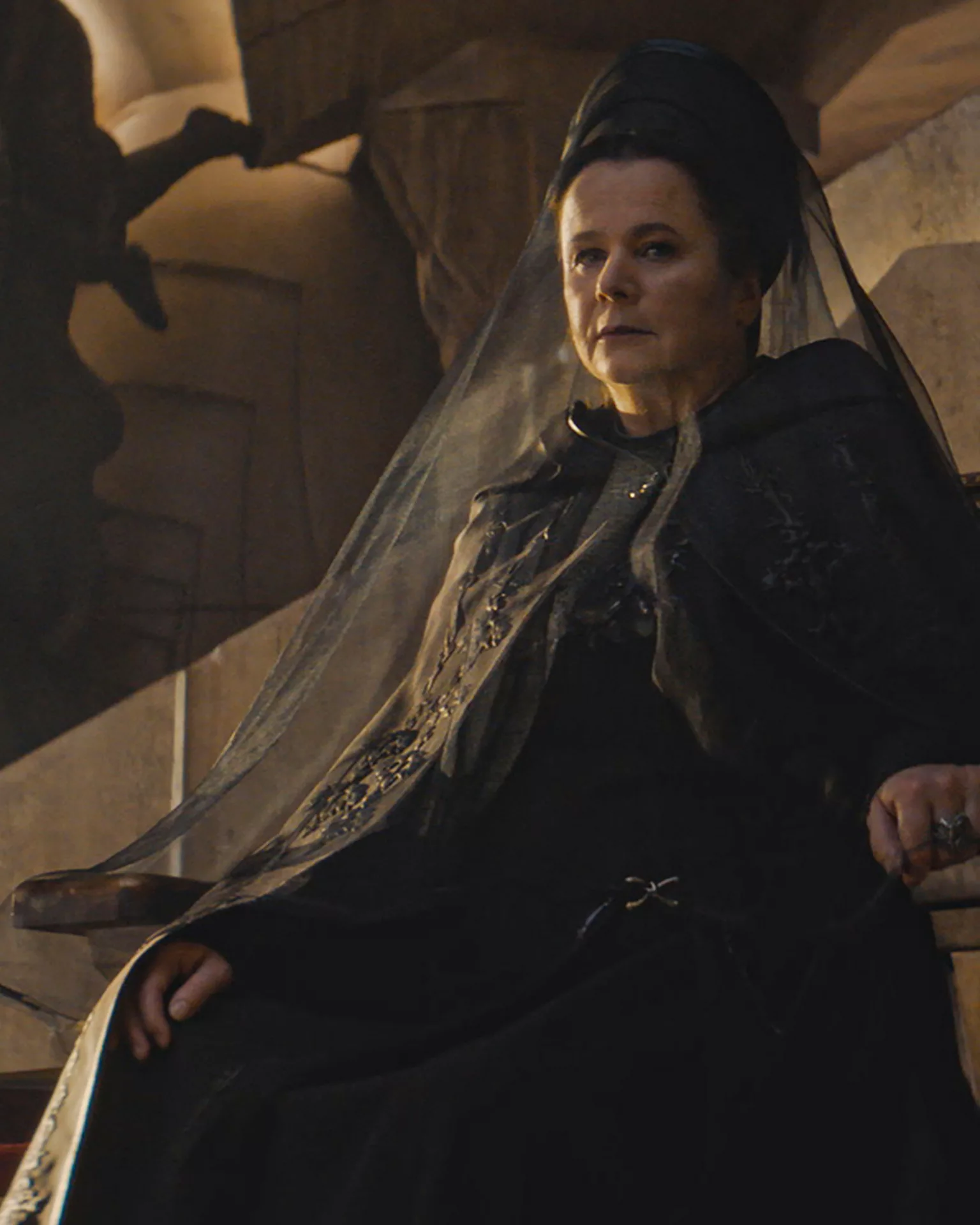
This is a show that takes itself seriously, but the writing is neither thoughtful nor good enough to warrant this. When we're forced to watch conversations between members of House Corrino, the show chips away at any goodwill it has, birthing instead a mess of space politics and performances. These scenes feature stilted backdrops, scenes in a nightclub that feel more like something out of a dystopian young adult film, and unconvincing new talent whose takes should not have passed through the editing bay. It's unfortunate because, at its core, the series hinges on the relationship between two interesting women who, if the series were strictly about them, could become the most interesting characters on TV this year.
The relationship between the two sisters is ruined by a heap of obnoxious side characters who, frankly, should have all been scrapped to allow room for the show's saving grace: Desmond Hart (Travis Fimmel). After arriving in front of Emperor Corrino after a trip to Arrakis, the mysterious fighter begins to craft his own agenda, walking the palace halls like a ghost, eyes shifting instead of blinking and voice never rising above a haunting whisper. It is later revealed that Desmond is the sole survivor of his trip after being swallowed by Shai-Hulud, the mythical worms that live under Arrakis' sand. He and others believe that the worm blessed him, and since his return, he has been able to do unspeakable things, not unlike the work of the Bene Gesserit.
Desmond and Valya operate as opposing sides of the same coin, and it's a shame these characters don't exist in a better show that allows them to become proper adversaries or allies. Not unlike the sisterhood, Hart's storyline focuses on threads examining blind faith and devotion. These inklings creep in and out of the series, slinking underneath the stilted dialogue until they eventually disappear for good. They leave in their wake a series that feels like it's been drawn and quartered, with the writers seemingly attempting to harvest a completely different show from what the studio may have wanted.
It forces "Dune: Prophecy" to careen down a hole from which it can't climb. It's almost as if this series was destined to fail from its inception, as the book it's adapted from was released twenty-six years after Frank Herbert's death. The series' creative overhauls have led to a blatant misunderstanding of what makes this world so interesting and what Herbert initially set out to convey when writing the first novel in this series. By the time episode four rolls around, you can't help but ask yourself why you're not just rewatching the films again, which, at their core, understand the franchise they're adapting.
Four episodes screened for review. Premieres on November 17th.
